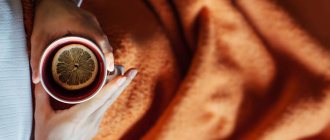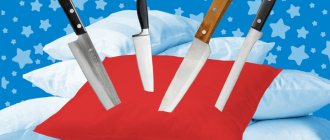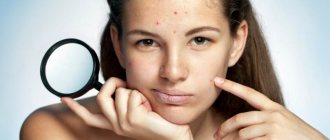- home
- Helpful information
- Elderly care
- Sleep disorders in older people
35% of older people have problems sleeping. The older you are, the more often such disorders occur. These may include difficulty falling asleep, waking up early, or interrupted or shallow sleep. A person may be disturbed by vivid, unpleasant dreams, he may experience fear of the night or dreams, and may not feel rested in the morning. Problems gradually accumulate: anxiety and tension increase, which makes it more difficult to fall asleep, and the period of night rest lasts less. To normalize the regime, you need to determine the reasons why it was violated.
Sign up for a consultation
Why do sleep problems occur?
There are two categories of violations.
Primary. Most often this is sleep apnea, which is manifested by short breath holds. Because of them, a person wakes up and then cannot fall asleep. The older you are, the more often such disorders occur. Their risk is higher in overweight people who are prone to snoring for a long time. In other cases, myoclonus (convulsions, muscle twitching), restless leg syndrome (trembling) interferes with sleep.
Secondary. They arise due to neurological, mental disorders, and some somatic diseases. These could be heart problems (frequent attacks of angina at night), bronchial asthma or COPD, pain syndromes, endocrine pathologies. If sleep disorders are associated with physical well-being, the person sleeps superficially, often wakes up, but can then fall asleep. With neurological problems, difficulties may arise both in falling asleep and in maintaining sleep. In two thirds of cases, secondary disorders are associated with mental disorders: depression, neuroses, dementia, high levels of anxiety, etc.
More often than not, sleep problems have several causes. For older patients, this may include an iatrogenic factor—taking medications that cause insomnia. Among these drugs are antidepressants, nootropics, antiarrhythmics, antihypertensives, bronchodilators, etc. Insomnia can be caused by their overdose or side effects.
The task of a gerontologist, psychiatrist or therapist when working with an elderly person is to collect as much information as possible about how insomnia manifests itself and what features it has in a particular case.
It is important to determine its root cause. In diagnosis, it matters what time a person falls asleep, whether he wakes up at night, how long he sleeps continuously, what his dreams are like, and how he himself assesses sleep productivity. The nature of the disorders and their possible causes allow us to select the most effective method of therapy. You have questions?
We will call you back within 30 seconds
or call the number
Clicking the "Submit"
, you automatically consent to the processing of your personal data and accept the terms of the User Agreement.
What is good to drink at night?
So what should you drink before bed to help you sleep better? Traditional medicine offers the most soothing and sleep-helping drinks. Honey medicines are very good in this case:
- Honey with apple cider vinegar. Dilute a tablespoon of honey and the same amount of natural apple cider vinegar (prepared yourself) in a glass of warm water. Drink half a glass an hour before bedtime and the second immediately before going to bed.
- Pumpkin juice with honey. A glass of juice and a tablespoon of honey.
Chamomile tea
Various herbs work well against insomnia. One of the leading places is occupied by chamomile tea, infusion or decoction:
- Pour dried chamomile flowers into a thermos at the rate of two tablespoons per glass of boiling water, leave for three hours and drink before bed.
In addition, you can take other flower teas:
- Flower collection. Pour a tablespoon of lavender and passionflower into two glasses of boiling water and leave for 20 minutes, then strain. Dilute a quarter glass of infusion with hot water (like ordinary tea leaves) to a glass and drink half an hour before going to bed. The rest can be stored in the refrigerator.
- Dill infusion. You can use fresh, dried or seeds. A tablespoon of dry (seeds) or two fresh crushed ones is poured into two glasses of boiling water, infused for 15 to 20 minutes, filtered, and taken just before bed, one or two teaspoons.
- Crush the dill seeds in a mortar and pour in 500 ml of Cahors, put on medium heat, bring to a boil, reduce to low and cook for 25 minutes. Strain, cool. Take 50 ml before bed.
Prepared infusions can be stored in the refrigerator for no more than two days.
Kefir or yogurt, milk
A glass of kefir, milk or natural yogurt is a recognized remedy for normalizing the process of falling asleep. It is better if they are at room temperature, but the milk can generally be heated. To make this insomnia remedy even more effective, you can add additional components. What can you drink before bed based on milk:
- Lemon juice, honey and walnuts. This is an excellent natural sleeping pill, in addition, it strengthens the immune and nervous systems, and also improves memory. Add two tablespoons of buckwheat honey and the same amount of grated walnuts to 200 ml of lemon juice. Everything is thoroughly mixed and taken one tablespoon at a time, washed down with warm milk, before bed.
- Heat a glass of milk slightly and add half a teaspoon of ghee to it. Drink at night, snacking on oatmeal cookies.
- Add a pinch of nutmeg, cardamom or cinnamon to a cup of warmed milk. Have a drink at night.
- Mix 200 ml of warm milk with a teaspoon of honey and drink 15 minutes before going to bed.
- A mixture of garlic, milk and honey - chop a clove of garlic, pour into a glass of milk, boil, cool to room temperature, add a teaspoon of honey. Stir and drink.
- Milk with honey and lavender. Add a tablespoon of dried lavender flowers to half a liter of milk and bring to a boil. Remove from heat, cover and leave to cool to room temperature. Strain. Drink a cup before bed, adding honey to taste.
Important! Milk is contraindicated for people with poor lactose intolerance. In this case, fermented milk products are used.
Cherry juice
Cherries contain melatonin, the so-called sleep hormone. And it doesn’t matter what condition it is in - fresh, frozen or dried. Two hours before bedtime, it is recommended to eat something light and wash it down with cherry juice, compote or fresh berries.
Important! This remedy is not suitable if you are intolerant or allergic to cherries.
Green tea
The use of this drink as a remedy for insomnia is ambiguous and depends on the individual characteristics of the body. On the one hand, green tea contains thiamine, which helps you fall asleep, but on the other hand, it contains a lot of caffeine, which has the exact opposite effect. And instead of the expected drowsiness, you can get a boost of vivacity.
Green tea also has a diuretic effect, so drinking it before bed will not contribute to a good restful rest during the night.
Tea with mint and lemon balm
This drink has a calming effect. You can use fresh mint and lemon balm or dried plants.
Pour two teaspoons of mint, lemon balm or their mixture with water, bring to a boil, remove from heat, wrap and let steep for about 20 minutes, strain and cool. Drink before bed. You can add honey. But in Morocco, this drink is prepared not with water, but with milk.
Coconut water
This natural drink is an excellent remedy for combating insomnia; in addition, coconut water eliminates heaviness in the stomach after a heavy meal, which also promotes good sleep. At night, it is recommended to take 200 ml of slightly warmed coconut water. Thus, it will begin to act faster and more effectively.
Non-drug treatment of insomnia in older people
At the first stage, they try to correct sleep disorders without using sleeping pills. To do this, older people are advised to:
- go to bed and get up in the morning at the same time, adhere to a strict regime. Going to bed should begin only after drowsiness appears;
- If you can’t fall asleep within 15-20 minutes, you can’t stay in bed: it’s better to get up, move to a chair or another room until you want to sleep again. If possible, the bed should be associated with sleep, and not with insomnia;
- You shouldn't sleep during the day. If severe drowsiness occurs, the recommended rest time is no more than 30 minutes;
- in the evening it is better to refrain from rich, high-calorie food, too strong impressions, and drinking tonic drinks;
- Sleep hygiene is important. The bed linen should be fresh, the mattress and pillow should be comfortable. It's better if the bedroom is cool. Curtains - thick, not letting in light;
- spend the evening hours quietly, doing the same activities. You can use daily “rituals” to relax: take a shower, read before falling asleep, drink a glass of milk, etc.;
- increase physical activity in the morning. Muscle fatigue improves the quality of rest at night. After lunch or in the late afternoon, you can go for a long walk;
- after lunch, exclude drinks and foods containing caffeine or other tonics (tea, coffee, chocolate, sweets, cocoa, etc.);
- stop drinking alcohol. Alcohol does not replace sleeping pills: “drunken” sleep is superficial and does not provide complete rest.
Chamomile tea
A well-known way to calm down and tune in to a balanced sleep is to drink chamomile tea. It will help cope with insomnia, relieve stress and nervous tension. In addition, it has an antiviral effect, protects against seasonal colds and does not cause side effects.
Photo: unsplash.com/@thejasmine
Important!
Not recommended for people diagnosed with asthma.
Insomnia medications for older people
Medicines are used only if compliance with general recommendations, correction of diet and nutrition do not produce results. Sleeping pills are used with extreme caution:
- only with diagnosed insomnia (sleep disturbances recur for a long time and negatively affect the patient’s physical and mental state);
- the minimum effective dosage is prescribed;
- therapy is intermittent. Taking the drug is allowed 2-3 times a week (not daily). Courses of treatment are short, do not exceed 3-4 weeks;
- monitoring the condition while taking the drug, gradually reducing the dosage immediately after receiving the result.
If sleep disturbances are secondary, caused by some underlying disease, therapy is aimed primarily at treating it. For primary disorders, medications are prescribed taking into account exactly what problem is causing insomnia. For muscle spasms, tranquilizers can be effective; for apnea, cyclopyrrolones are more often used.
When prescribing any psychoactive, sedative and other drugs to elderly patients, the dosage is reduced as much as possible, taking into account age and health status. You cannot independently increase the dosage or duration of the course - this is dangerous for the development of drug dependence and a negative impact on cognitive functions. With long-term continuous use of certain sleeping pills, concentration, attention, and thinking may decrease.
Warm milk
Milk is a “natural antidepressant” and relieves anxiety and restlessness. A glass of milk at night will increase the level of serotonin in the body, one of the hormones of joy. And it, in turn, has a positive effect on the quality of sleep.
What are liquid calories? Perhaps they are the ones that prevent you from getting rid of extra pounds.
How to replace expensive PP products? 10 available alternatives
Sleep disorders and dementia
In senile dementia and other delirious disorders, severe insomnia develops. Elderly people themselves do not complain about it, but for nearby relatives such sleep disturbances become a serious problem. A person does not fall asleep himself, does not allow others to sleep, his sleep and wakefulness patterns change. Therapy in this case requires a special approach.
In dementia, problems with sleep manifest themselves as a violation of the daily routine: during the day a person experiences drowsiness, and closer to night anxiety and agitation increase. The patient may try to leave home, collect things, tie knots, experience hallucinations, etc. It is dangerous to use tranquilizers in this condition: they can worsen health and make the patient even more restless.
It is possible to use antipsychotics and correct previously prescribed drug therapy. Medical doctors recommend changing your regimen so that the bulk of your activity occurs during the daytime hours. This will help restore the circadian rhythm, control it, and reduce the frequency of insomnia episodes.
Order a visit from a gerontologist. Experienced doctors. Treatment in a hospital or at home. 24-hour service in Moscow and the region. Professional, anonymous, safe.
- Caring for the elderly with mental disorders
- Psychiatrist help at home
- Types of rehabilitation for the elderly and disabled
- Advantages of our hospital
- How to choose a good nursing home
- Care for the elderly: in a hospital or at home
- Problems of caring for the elderly
- Who should you leave a person with dementia with if you need to leave?
- Help from a gerontologist in caring for an elderly person
- Sleep disorders in older people
- Features of caring for a bedridden patient
- Features of caring for older people with mental disorders
- Hygiene in old age
- Establishing guardianship for a patient with dementia
- Rules for communicating with an elderly person
- 10 Frequently Asked Questions About Nursing Homes: Everything You Need to Know
Drinks that affect sleep quality
Almost all drinks affect sleep to some extent - positively or negatively. Stimulants - coffee, tea, alcohol - should be taken no later than three hours before bedtime, and if a person is prone to insomnia, then more. But drinks that have a calming and relaxing effect on the psyche and body can be drunk immediately before bed.
You don’t need to drink a lot of any drinks at night, even against insomnia - going to the toilet will not have the best effect on your sleep.
Drinks that are bad for sleep
There are drinks that, on the contrary, prevent you from falling asleep or, if you manage to fall asleep, make your sleep restless and interrupted.
Alcohol
If you fall asleep after actively drinking alcohol, then sleep will not bring relief - in the morning you will have a headache, feel general fatigue, plus all the “delights” of a hangover. This occurs, in particular, due to depression of the nervous system. In addition, alcohol affects sleep structure.
Although if you use alcohol in medicinal doses, for example, a dessert spoon of cognac at night, it can help you fall asleep, besides, almost all medical tinctures, including those for insomnia, are made with alcohol.
Carbonated drinks
Constant consumption of carbonated drinks, especially at night, leads to chronic lack of sleep. In addition, they cause fermentation in the stomach and intestines, which also makes sleep restless.
Strong tea, coffee
Strong tea and coffee contain a lot of caffeine, which prevents the body and nervous system from relaxing and falling asleep, and sleep rhythms are also disrupted. Therefore, drinking these drinks at night is not recommended.











